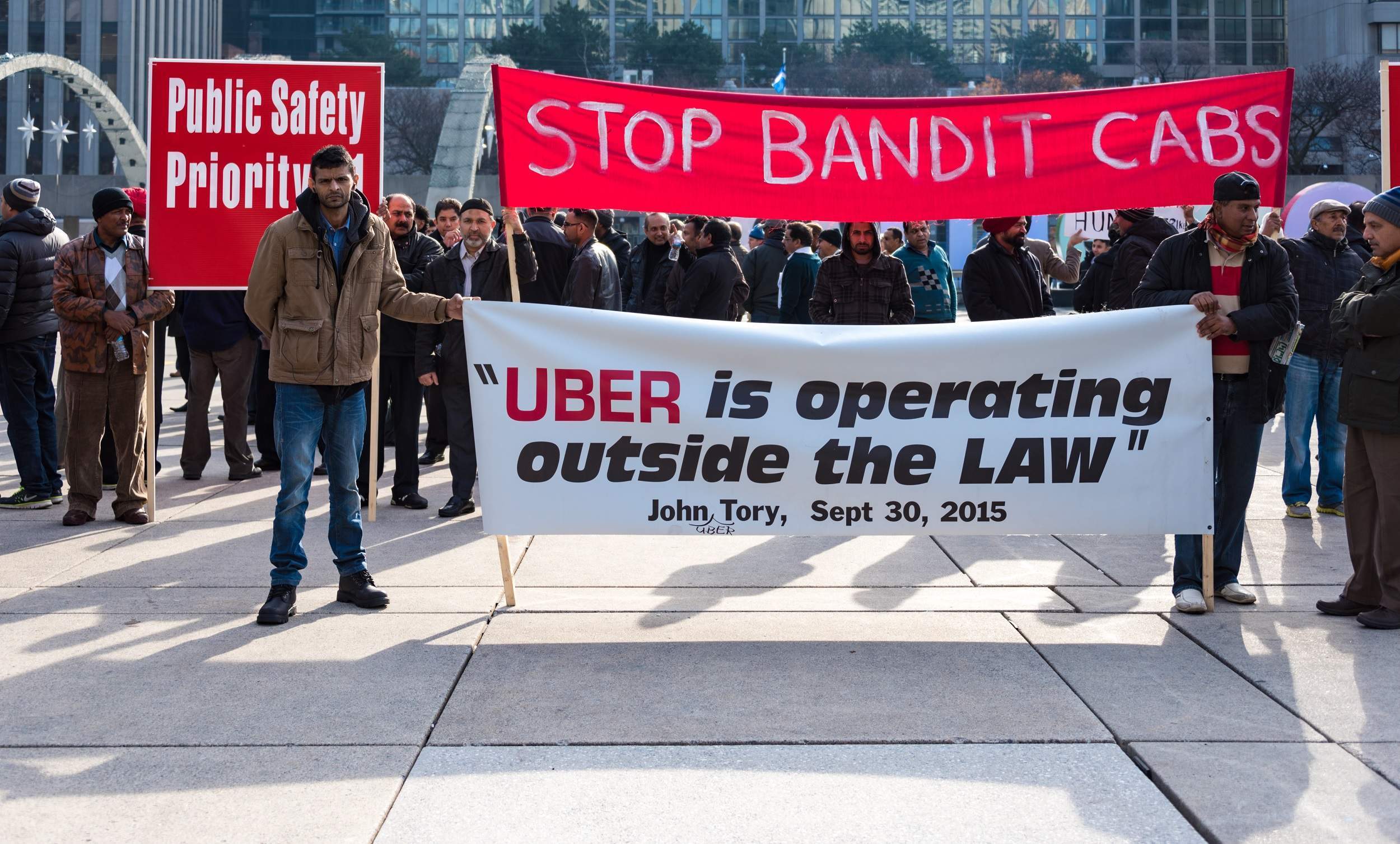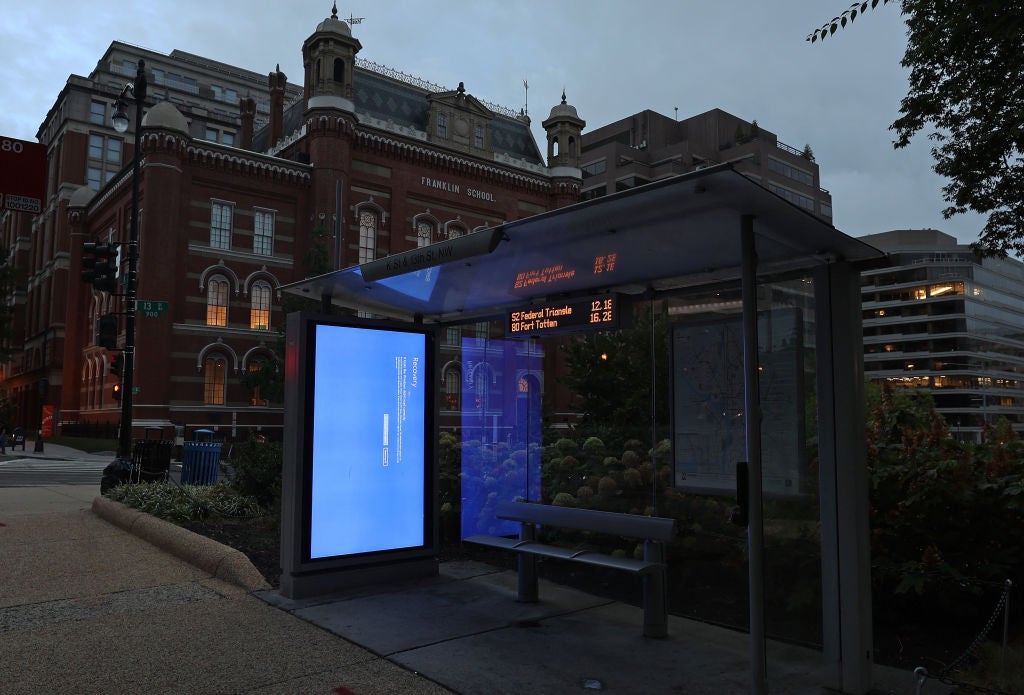
Considering the ride-sharing startup Uber is regarded as one of the most successful in the world, it is not without its problems.
Issues with upper management aside, in Uber’s quest for the ultimate disruption of the taxi industry, it has come up against regulators and local governments time and time again that are not happy with the way it conducts itself.
Here are the places where the company has come up against obstacles and had to leave.
1. China
In China, Uber created a separate subsidiary that was eventually absorbed by its major competitor, Didi Chuxing when the company decided to leave.
It was reportedly losing $1bn a year in China in order to keep up from Didi, which had an 80 percent market share at the time, something that Uber’s then-chief executive Travis Kalanick admitted was unsustainable.
Kalanick said:
How well do you really know your competitors?
Access the most comprehensive Company Profiles on the market, powered by GlobalData. Save hours of research. Gain competitive edge.

Thank you!
Your download email will arrive shortly
Not ready to buy yet? Download a free sample
We are confident about the unique quality of our Company Profiles. However, we want you to make the most beneficial decision for your business, so we offer a free sample that you can download by submitting the below form
By GlobalDataGetting to profitability is the only way to build a sustainable business that can best serve Chinese riders, drivers and cities over the long term.
2. Denmark
Earlier this year, Uber was made to withdraw from the Danish market.
This was a response to the country’s new taxi laws requiring all drivers to have fare meters and sensors.
It was surprising it took this long actually because in 2016 the country’s high court ruled that it was an illegal taxi service.
3. Germany
Whilst the ride-sharing app is still available in Berlin and Munich, it was forced to pull out of three German cities: Dusseldorf, Frankfurt and Hamburg in 2015.
The decision came after a judge ruled that Uber drivers would have to obtain the same licenses required of normal taxi drivers.
The startup ran into supply problems in the cities and decided to withdraw.
Uber’s general manager in Germany, Christian Freese, said at the time:
We know this will be disappointing for riders and our partner drivers in those three cities, so we are looking at how we can support them. Uber remains committed to expanding its services in Germany, and will therefore continue its engagement and dialogue with politicians and regulators.

4. Korea
Though Uber is still available in South Korea, namely Seoul, it has run up against its fair share of obstacles.
It was forced to suspend its UberX operation in 2014 after prosecutors said it violated transport law.
The legal battle continued until earlier this year when a South Korean court ruled that Uber was illegally using private vehicles for commercial purposes.
The company was fined $8,863 by the Seoul Central District Court.
5. Macau
Uber will be suspended in the Chinese-ruled territory from July 22, after a two-year regulatory battle. A statement on its website said:
We have fought hard every day to legitimise our Macau operations … Unfortunately we still have room for improvement on this issue.
The startup’s Hong Kong operation has also been under fire after 22 drivers were arrested in May in an undercover police operation.
However, it currently has no plans to leave the city.
6. Russia
Last week, it was revealed that Uber was retreating from Russia and instead merging with its rival Yandex, in a similar manner to its Chinese merger with Didi Chuxing.
Uber’s ride-hailing and food-delivery service, UberEats, in Russia, Azerbaijan, Belarus and Kazakhstan will be absorbed by Yandex and operate within its own taxi app.
It is not completely pulling out of the region, however.
Uber will own 36 percent of the new venture, with three of the seven board seats, and be investing a further $225m.
6. Spain
Barcelona in Spain was one of the first cities to force Uber out back in 2014.
A judge ruled that Uber’s drivers were not authorised to provide taxi service in the city, as it amounted to unfair competition against other licensed cabs.
The regional government instigated the ban from 2015 and threatened drivers with €6,000 fines. Other cities in the country followed suit, so now there is now no Uber in Spain.
7. Taiwan
Taiwan is a funny one for Uber. Back in February, it halted all its services after carrying out journeys on the east Asian island for four years.
After protests from domestic taxi drivers, Taiwan’s government responded by raising fines against unlicensed ride-sharing services to the highest level globally.
But, only two months later the startup was back, after partnering with licensed rental car companies in the capital, Taipei.
Taiwan’s highway bureau, part of the transport ministry, said it would continue to supervise Uber’s operations on the island to ensure it did not pair up with unlicensed individual drivers.
8. United States
The company was forced to pull its self-driving car programme from Arizona, California, and Pennsylvania in the US after one of the autonomous vehicles was involved in a crash.
A Volvo SUV fitted with Uber’s self-driving tech was carrying two engineers in Arizona, when the crash happened, reportedly after another car “failed to yield” to the Uber car at a left turn.
A spokesperson for the police in Tempe, Arizona, Josie Montenegro, said:
There was a person behind the wheel. It is uncertain at this time if they were controlling the vehicle at the time of the collision.








